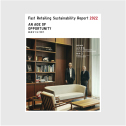Worker Wellbeing and Beyond, Indonesia
Fast Retailing has been cooperating with the International Labour Organization (ILO) to strive for better working environments around Asia.
After entering into a partnership in 2019, we have worked together to help establish a new national employment insurance system in Indonesia
and conduct a comparative study of social security systems in nearby countries where Fast Retailing has manufacturing operations.
Here, we take a look at the past initiatives and future prospects, with Ms. Michiko Miyamoto, Director of ILO Country Office for Indonesia and Timor-Leste.


Left: Job fair in Jakarta, December 2021.
Right: An international conference conducted by the ILO and the Ministry of Manpower to learn about unemployment benefit programs implemented in five Asian countries, March 2020.

A historical first: Worker support system,
established by Fast Retailing and ILO
Michiko Miyamoto
Country Director for Indonesia and Timor-Leste International Labour Organization

A new employment insurance system in Indonesia is due to come into effect in 2022, which was technically supported through the partnership between Fast Retailing and the ILO. As a private company, Fast Retailing contributed a total of approximately 190 million yen—the largest cumulative contribution by a private company—to our joint project to help envision and establish a social security system to better protect Indonesian workers at times of sudden unemployment. Although apparel brands often do not have employment contracts with factory workers, they autonomously make efforts to protect the human rights of workers in their supply chain and ensure occupational health and safety in workplaces. In this project, Fast Retailing played a pioneering role to support workers, even beyond its own supply chain or the garment industry. Through its partnership with the ILO, Fast Retailing has contributed to improving the working environments of all Indonesian workers by advancing the country’s
social security system. This is a significant achievement that represents strong leadership from a corporation.
Throughout the COVID-19 crisis, like many other countries in Asia, Indonesia did not have an employment insurance system as advanced as those in Japan and elsewhere. They faced challenges to provide income security for their unemployed workers. While the country suffered from surging unemployment caused by the pandemic, the implementation of the new employment insurance system will help Indonesia’s workers. When the system goes into effect, workers who have lost their jobs due to factory bankruptcy, dismissal or other unexpected reasons can receive benefits for up to six months during their period of unemployment. In addition, job seekers will be entitled to receive job search assistance that will help them find new work as quickly as possible. This includes training to upgrade skills or reskilling to improve employability in different growth industries. In the consultation process around labor and social security issues, it is always important to reflect the views of the government, workers and employers to develop an effective and sustainable system. The ILO values and promotes such dialogues among the three parties. We worked together to understand the issues related to the employment insurance system. With the significant achievement of this partnership in Indonesia, the ILO has been receiving requests from other countries in Asia seeking ILO’s technical assistance to improve their own unemployment protection systems. I believe that Fast Retailing leadership and this pioneering initiative in Indonesia will catalyze efforts of the private sector and help promote decent work for all workers in the world.

Respecting human rights
and labor environments in the supply chain
Fast Retailing strives to ensure human rights are respected throughout the supply chain
and that production is carried out in good working environments.
Here, we outline some key initiatives.
-
01
Code of Conduct for Production Partners
Fast Retailing established its Code of Conduct (CoC) for Production Partners in 2004 to protect worker and human rights and to ensure decent working environments. Fast Retailing contracts only with partners who pledge to comply with our CoC, which formally stipulates labor standards such as working hours and prohibits against child labor, forced labor and harassment. In some cases and regions, the terms of our CoC go beyond minimum local legal requirements in accordance with international labor standards. It is reviewed regularly and updated whenever necessary.
Fast Retailing established its Code of Conduct (CoC) for Production Partners in 2004 to protect worker and human rights and to ensure decent working environments. Fast Retailing contracts only with partners who pledge to comply with our CoC, which formally stipulates labor standards such as working hours and prohibits against child labor, forced labor and harassment. In some cases and regions, the terms of our CoC go beyond minimum local legal requirements in accordance with international labor standards. It is reviewed regularly and updated whenever necessary.
-
02
Monitoring the working environments where people make our clothes
- Fast Retailing monitors working environments and confirms CoC compliance status at key facilities such as garment factories, subcontractors and fabric mills. Whenever necessary, we request that facilities implement improvement initiatives according to the nature and severity of any risks we discover.
- We have established hotlines for factory employees, so they can consult with Fast Retailing directly and anonymously in their local languages. We are also implementing preventive measures to stop human rights violations, including harassment, child labor, exploitation of migrant workers and unfair or unlawful wages and benefits.
- We continue to pursue traceability down to the raw materials stage, and confirm working environments in order to ensure human rights due diligence and prevent human rights risks in the entire supply chain.
- Fast Retailing monitors working environments and confirms CoC compliance status at key facilities such as garment factories, subcontractors and fabric mills. Whenever necessary, we request that facilities implement improvement initiatives according to the nature and severity of any risks we discover.
- We have established hotlines for factory employees, so they can consult with Fast Retailing directly and anonymously in their local languages. We are also implementing preventive measures to stop human rights violations, including harassment, child labor, exploitation of migrant workers and unfair or unlawful wages and benefits.
- We continue to pursue traceability down to the raw materials stage, and confirm working environments in order to ensure human rights due diligence and prevent human rights risks in the entire supply chain.
-
03
Responsible purchasing
Responsible purchasing helps protect and improve the rights of workers employed by our suppliers. Accordingly, our procurement teams purchase responsibly. When placing an order, we develop a purchase plan based on the production equipment and capacity of the factory, with quantity and
delivery dates agreed in advance with no changes to be made without factory consent. Moreover, we take care not to abuse the dominant bargaining position brands have when negotiating on prices and payment terms. Fast Retailing has developed guidelines on responsible purchasing and provides training to all employees involved in procurement.Responsible purchasing helps protect and improve the rights of workers employed by our suppliers. Accordingly, our procurement teams purchase responsibly. When placing an order, we develop a purchase plan based on the production equipment and capacity of the factory, with quantity and
delivery dates agreed in advance with no changes to be made without factory consent. Moreover, we take care not to abuse the dominant bargaining position brands have when negotiating on prices and payment terms. Fast Retailing has developed guidelines on responsible purchasing and provides training to all employees involved in procurement. -
04
Disclosure of major production partners
Since 2017, Fast Retailing has been publishing and maintaining a list of major production partners to increase the transparency of our supply chain, and to ensure good labor conditions and working environments. By March 2022, we plan to publish a list of all garment factories that we have ongoing dealings with and are working to expand the scope of our disclosure to also include non-garment factories.
Since 2017, Fast Retailing has been publishing and maintaining a list of major production partners to increase the transparency of our supply chain, and to ensure good labor conditions and working environments. By March 2022, we plan to publish a list of all garment factories that we have ongoing dealings with and are working to expand the scope of our disclosure to also include non-garment factories.
-
05
Third-party partnerships and engagement
To help solve global social issues that cannot be addressed by any single company, we work proactively with respected NPOs, NGOs and industry groups, including UN Women, the International Labour Organization (ILO). By engaging a diverse range of stakeholders across industries and geographies, we aim to improve working environments everywhere.
To help solve global social issues that cannot be addressed by any single company, we work proactively with respected NPOs, NGOs and industry groups, including UN Women, the International Labour Organization (ILO). By engaging a diverse range of stakeholders across industries and geographies, we aim to improve working environments everywhere.
-

-
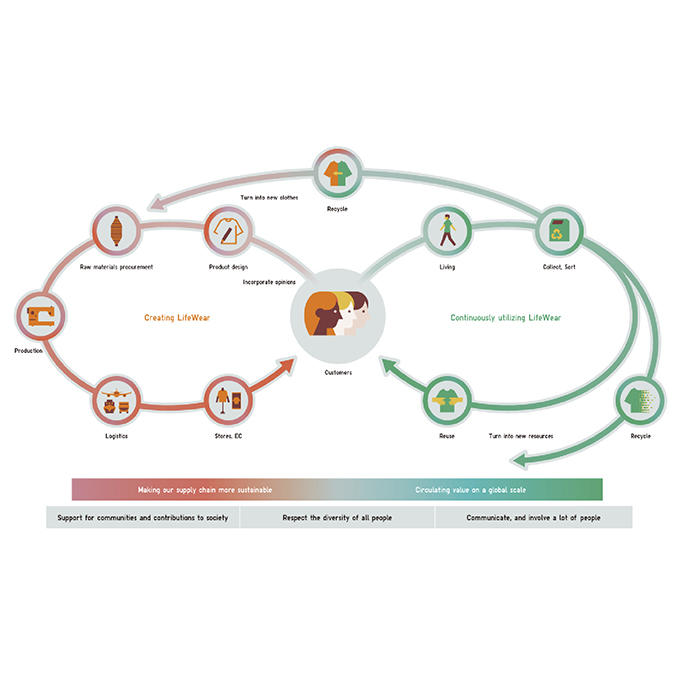
LifeWear: A New Industry
-

Giving Back to the World
-

Humanity + Technology
-

Generation Next, Finding a Way
-
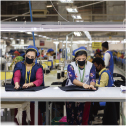
Worker Wellbeing as a Priority
-
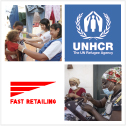
Ten Years with Refugees
-

Clothes for everyday life
-
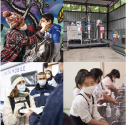
Putting People First
-

Unlocking The Power of Clothing
Doraemon Sustainability Mode ©Fujiko-Pro
-

Corporate Governance
-
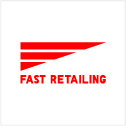
FAST RETAILING WAY
-
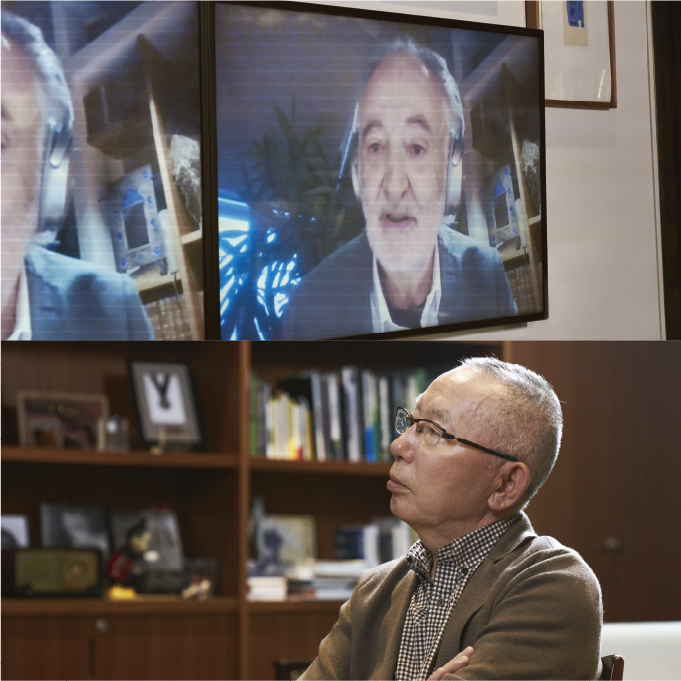
Sustainability Report 2021[ARCHIVE]


